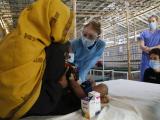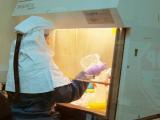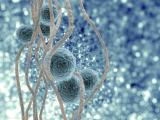Jun 1, 2005 (CIDRAP News) A federally funded network of academic centers that do research on bioterrorism and emerging infectious diseases has been rounded out with the addition of the University of California, Irvine, and Colorado State University in Fort Collins.
The National Institute of Allergy and Infectious Diseases (NIAID) said today that the two schools have been named "Regional Centers of Excellence for Biodefense and Emerging Infectious Disease Research (RCE)." Each school will receive about $10 million a year over the next 4 years to lead a regional research consortium.
At the University of California, Irvine, Alan G. Barbour, MD, will head a consortium that includes four other University of California campuses and 11 other regional universities and research institutions, the NIAID said.
Barry J. Beaty, PhD, of Colorado State will lead a consortium that includes five other universities along with small-business partners. The consortium will also collaborate with the US Centers for Disease Control and Prevention, whose Division of Vector-Borne Infectious Diseases operates in Fort Collins.
"The addition of these two new RCEs expands the networks scientific reach to cover some poorly understood diseases and new research needs," the NIAID said. "For example, researchers in the new centers have expertise in equine encephalitis and other viral diseases that can be transmitted to people by mosquitoes. The centers also add expertise in hantaviruses, as well as in the development of diagnostics and animal models of disease."
The NIAID set up the biodefense research network in 2003 with grants to eight institutions: Duke University, Harvard Medical School, the New York State Department of Health, University of Chicago, University of Maryland, University of Texas Medical Branch (Galveston), University of Washington, and Washington University in St. Louis.
The network's mission includes developing and testing vaccines and "therapeutic and diagnostic concepts" and providing facilities and scientific support to first responders in case of a national biodefense emergency, the NIAID said.
See also:
Jun 1 NIAID news release





















